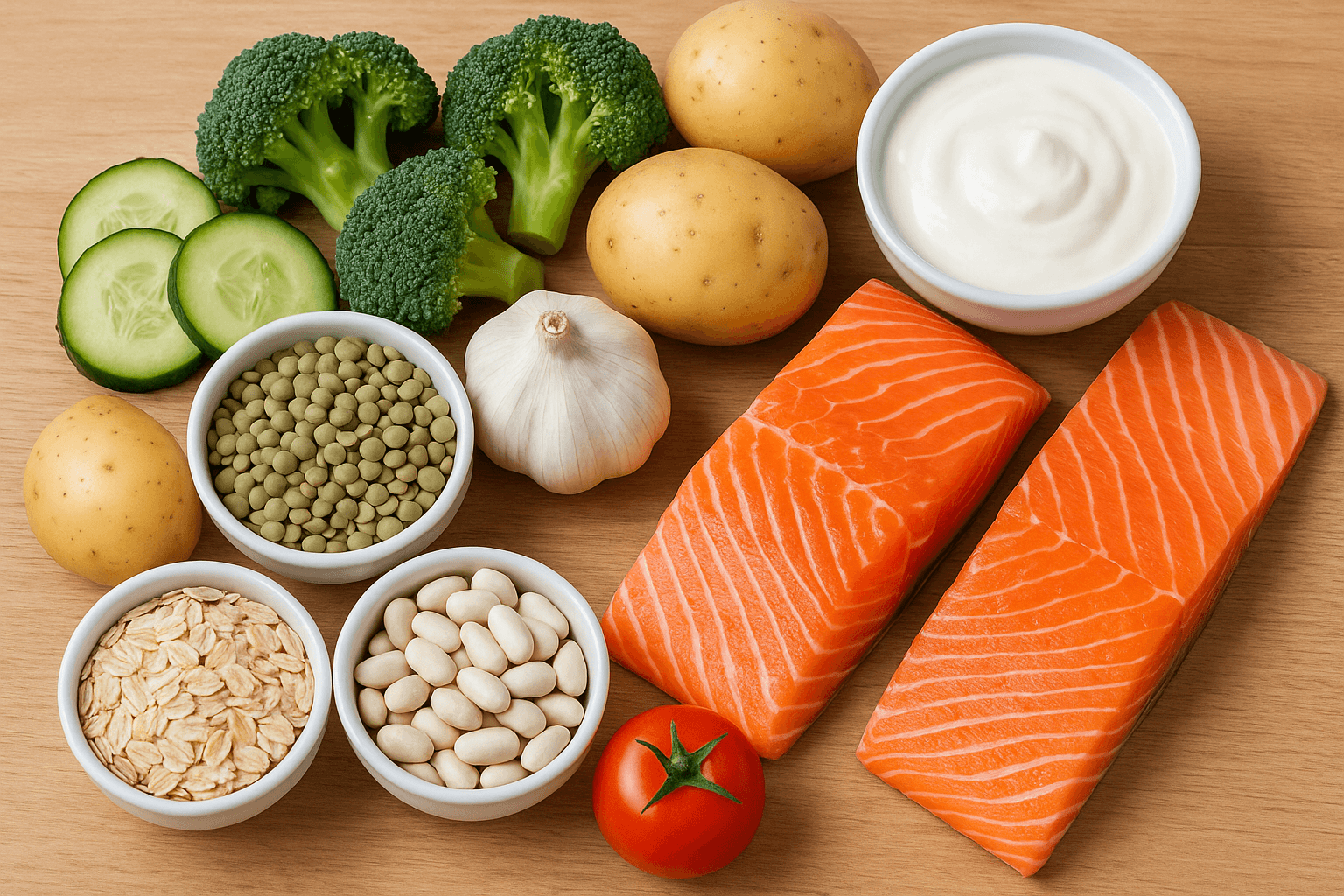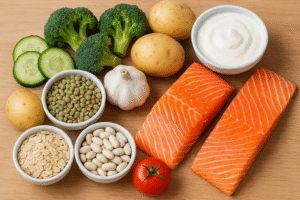Whether you’re managing gout, kidney stones, or just want to support the health of your metabolism, you’ll need to know Foods Low in Purines. Purines are naturally occurring substances that you find in a lot of foods, and they’re not inherently harmful, but they do break down into uric acid, the substance that can build up and crystallize in joints or kidneys, causing pain.
Purine-rich diets can cause gout flares and tax the kidneys. Thankfully, there are loads of tasty and nutritious foods that are low in purines and perfectly safe for you to eat. Well, in this post, I am going to guide you through 12 incredible Foods Low in Purines to help you create delicious and potent meals.
1. Low-Fat Dairy Products
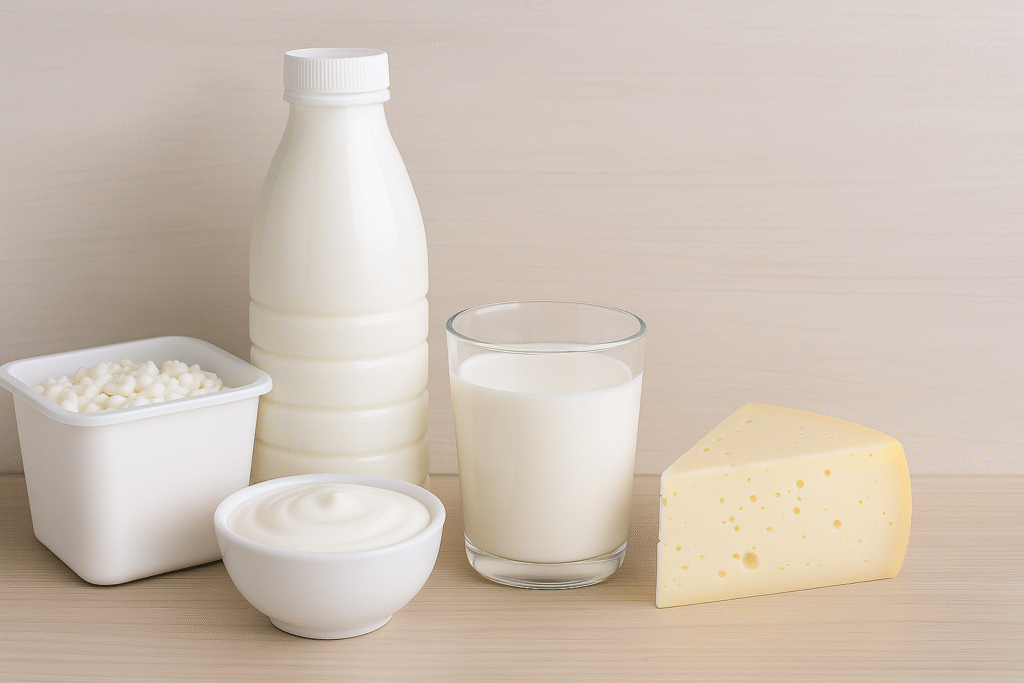
Starring on any low-purine list are milk, yogurt, and cheese — especially low-fat or fat-free versions.
Why They’re Good: Low-fat dairy foods are naturally foods low in purines, and studies have found that these foods can help reduce the body’s level of uric acid. The proteins in dairy, including casein and lactalbumin (a type of albumin protein), exert a weak uricosuric effect — they help the body excrete uric acid in urine.
And, daily, opt for low-fat yogurt or milk to keep uric acid in line while helping maintain bone and immune health.
2. Eggs
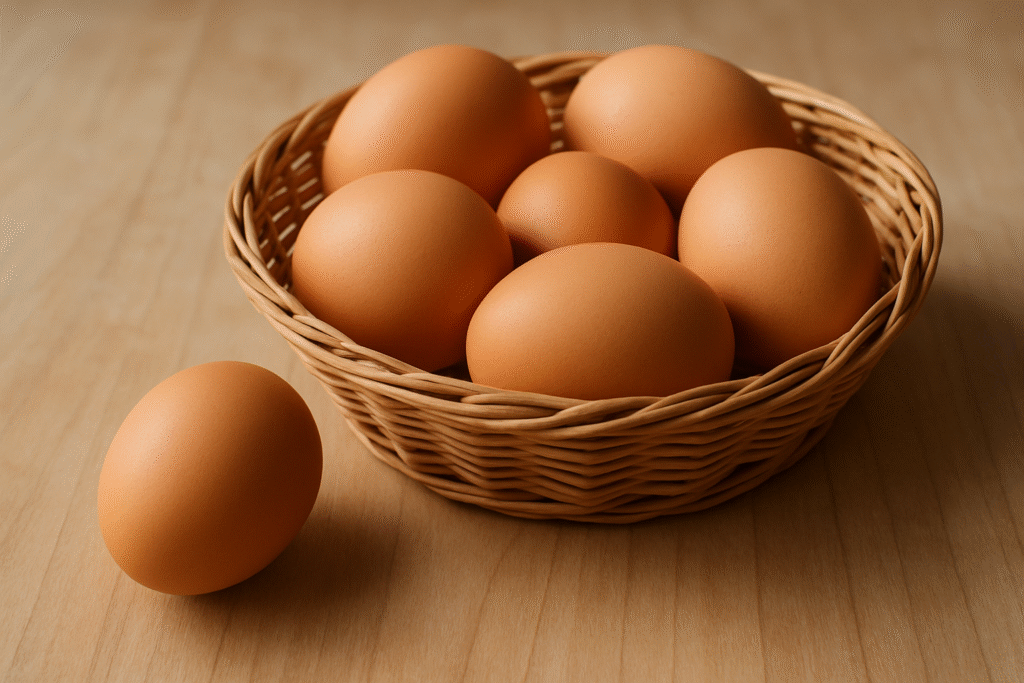
Eggs can be eaten in many different forms and are naturally foods low in purines.
Why They’re Good: Meats and seafood are very rich in purine, but eggs are a safe and satisfying swap. They also are high in quality protein and are not precursors for uric acid.
Takeaway: Use eggs as a go-to protein that is unlikely to elevate purine.
3. Whole Grains
These fiber-packed staples, including brown and wild rice, oats, quinoa and whole grain products, are great carbohydrate options for a low-purine diet.
Why They’re Good: Whole grains are not only foods low in purines, but they also promote digestion and help to keep blood sugar stable. Studies have shown that diets high in whole grains are linked to less inflammation and better control of metabolism.
Key Point: Replacing refined carbs with whole grains can lower purine consumption and promote good health in the long run.
4. Most Vegetables (With a Few Exceptions)
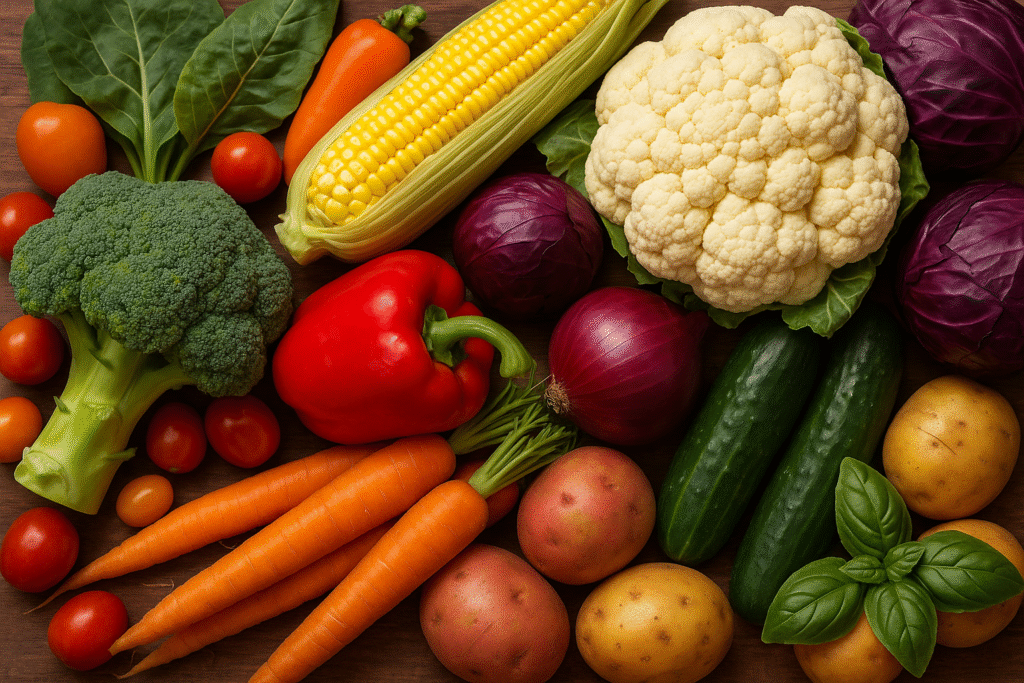
Leafy greens, bell peppers, carrots, tomatoes, etc. are all good.
Why They’re Good: Some vegetables, like spinach and asparagus, have a moderate amount of purines — but they don’t appear to have the same impact on gout as animal-based purine does. The majority of vegetables are acceptable – and very healthy – on a gout diet.
Takeaway: Fill half your plate with vegetables at every meal — they’re healthy, low in purines and protective against chronic disease.
5. Fresh Fruits
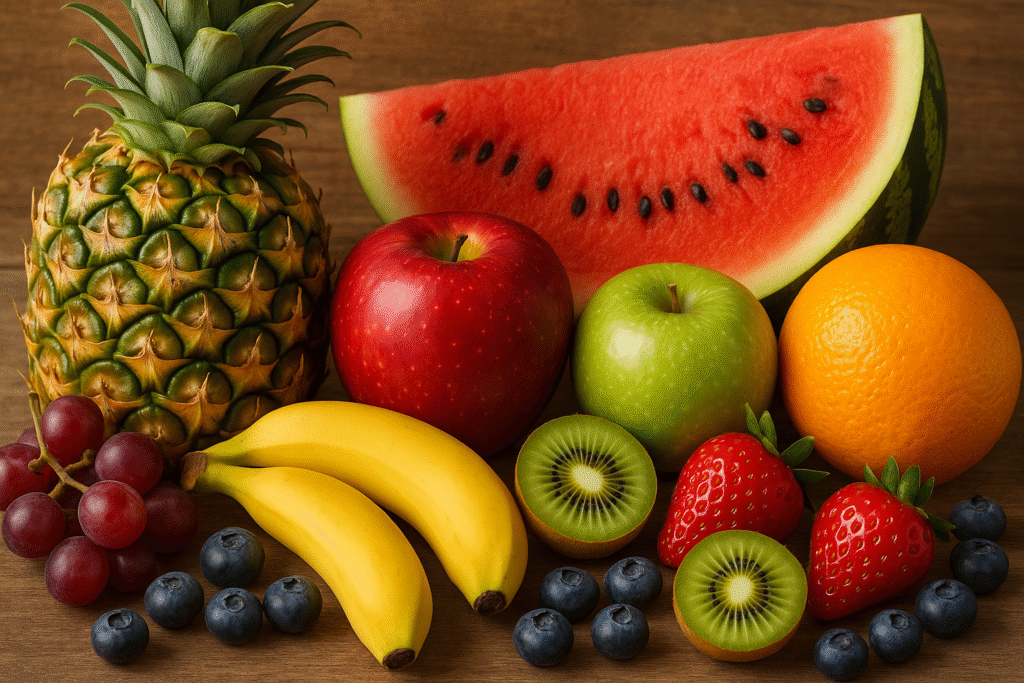
Apples, berries, bananas, grapes and oranges are all foods low in purines.
Why They’re Good: Rich in antioxidants, vitamin C and hydrating water content. Vitamin C has specifically been observed to reduce the amount of uric acid in the blood. Cherries, in particular, are associated with fewer gout flare-ups.
Summary: Snack on fresh fruit each day to sate your sweet tooth and help keep purine levels low.
6. Nuts and Seeds
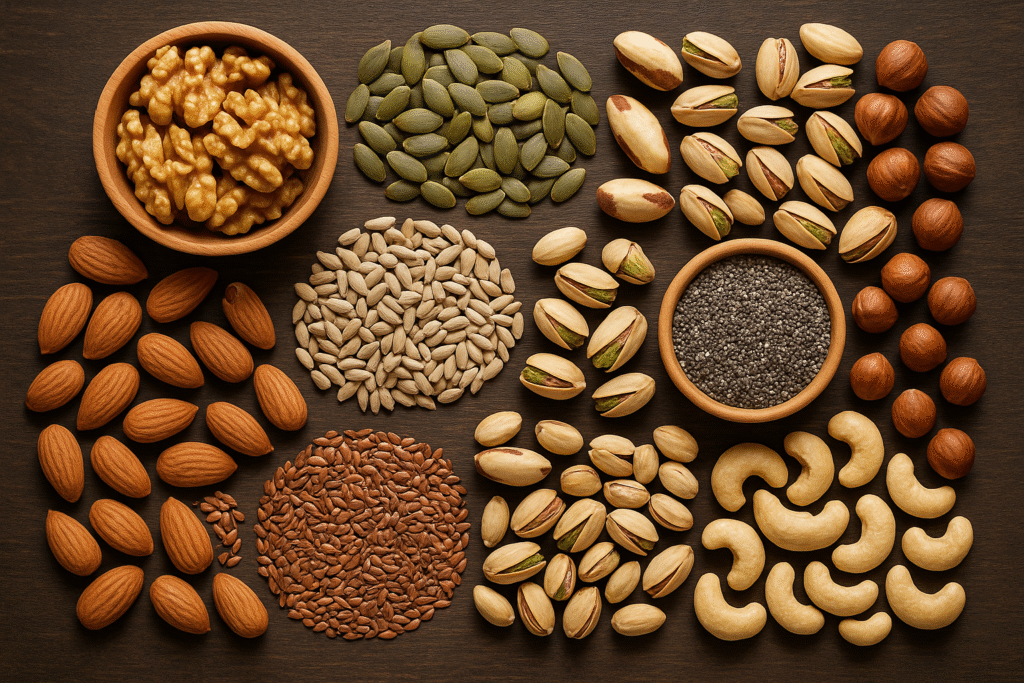
Almonds, walnuts, flaxseeds, chia seeds, and peanuts are plant-based fats and protein with low purine.
Why They’re Good: Nuts and seeds are not only low in purines, but they help heart health and decrease inflammation. Their fiber content and healthful fats promote a more balanced metabolic profile.
The Query: Snack on some nuts and seeds that give you energy without any purine count When you eat nuts (and seeds) here and there like on salads, oatmeal, or even as a snack on its own, you help fuel your body without an ounce of purine floating around.
7. Coffee

Black coffee, with no cream or sugar, is linked to a lower risk of gout.
Why It’s Good: Coffee contains little or no purines, which means it can occasionally help to decrease uric acid levels in the body by increasing kidney function and promoting uric acid excretion. Some research indicates that moderate coffee consumption may decrease the risk of gout.
Key Takeaway: Drink 1–2 cups of coffee a day if you like it — it’s safe and possibly even protective.
8. Plant-Based Milks
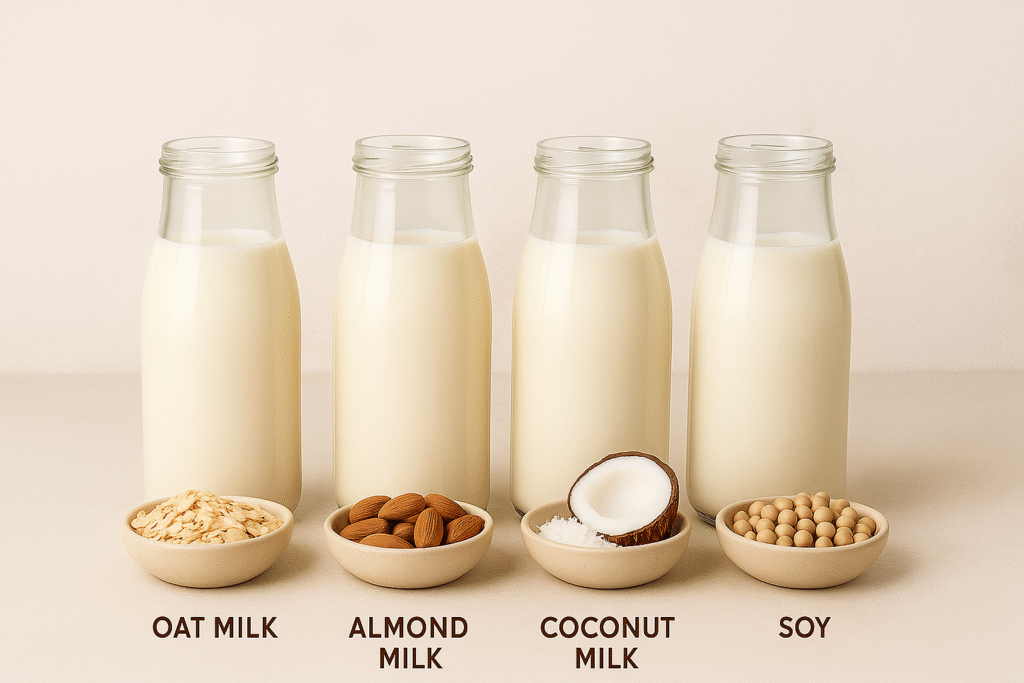
Almond milk, oat milk, soy milk, and other plant-based milks are inherently foods low in purines.
Why They’re Good: Almond, soy and other non-dairy milks add variety, and many are fortified with calcium and vitamin D. And unlike high-purine animal products, these drinks don’t cause kidney problems or extra inflammation.
Takeaway: Try using plant-based milks like almond milk in smoothies or in your cereal as they are low-purine and vegan-friendly.
9. Herbs and Spices
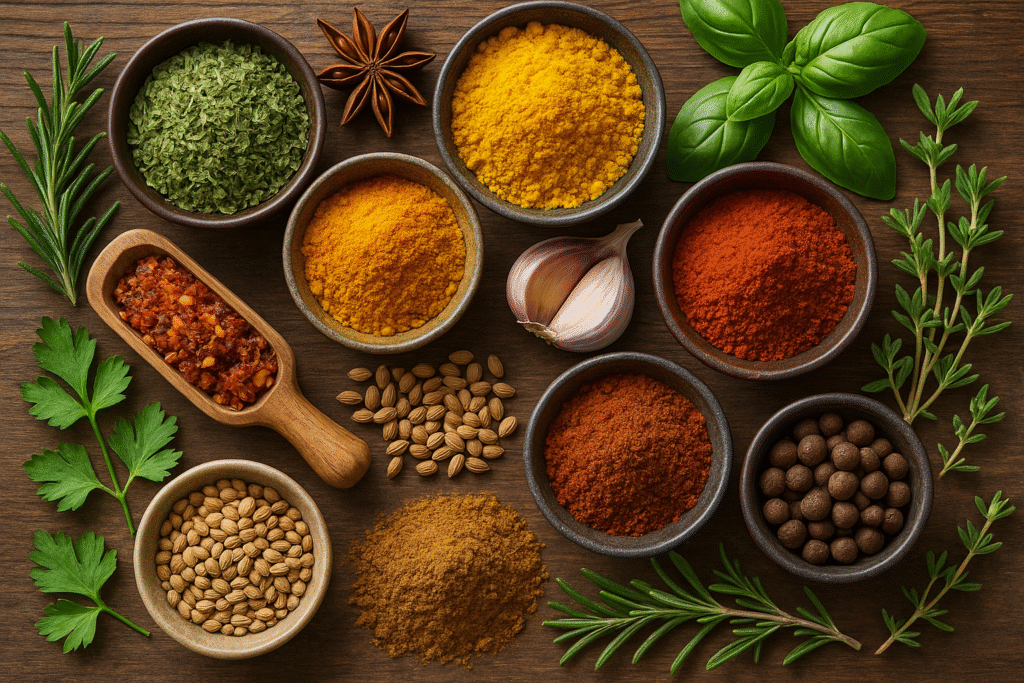
Basil, turmeric, garlic, and cinnamon are low-purine, taste-enhancing herbs.
Why They’re Good: These seasonings are low-purine foods rich in anti-inflammatory, antioxidant goodness. Curcumin in turmeric, for example, may help to curb gout-related inflammation.
Pro tip: flavor your food with herbs and spices to enhance taste and naturally fight inflammation.
10. Potatoes and Sweet Potatoes
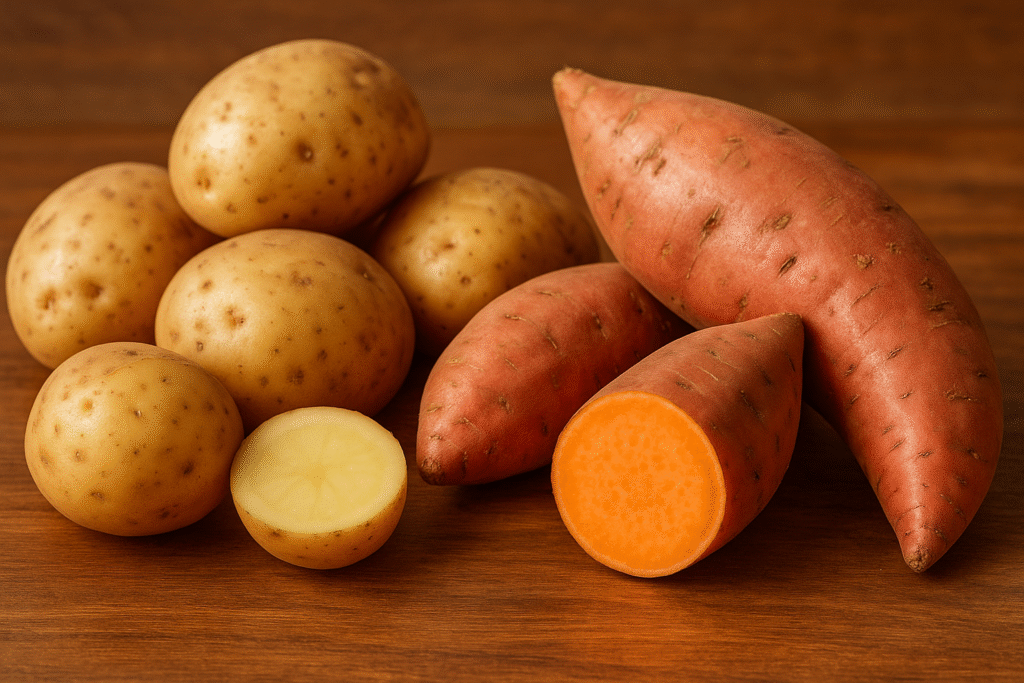
Starchy vegetables are great low-purine carb sources.
“White and sweet potatoes are high in fiber, potassium and vitamin C, which helps fend off damage to cells and leads to healthy immunity and normal kidney and metabolism function — and all with little to no effect on uric acid levels,” says Mark A. Moyad, M.D., M.P.H. Body+Soul’s nutrition advisor.
Best for: Plate bake or boil potatoes as part of a purine-conscious, balanced plate.
11. Tofu and Soy Products
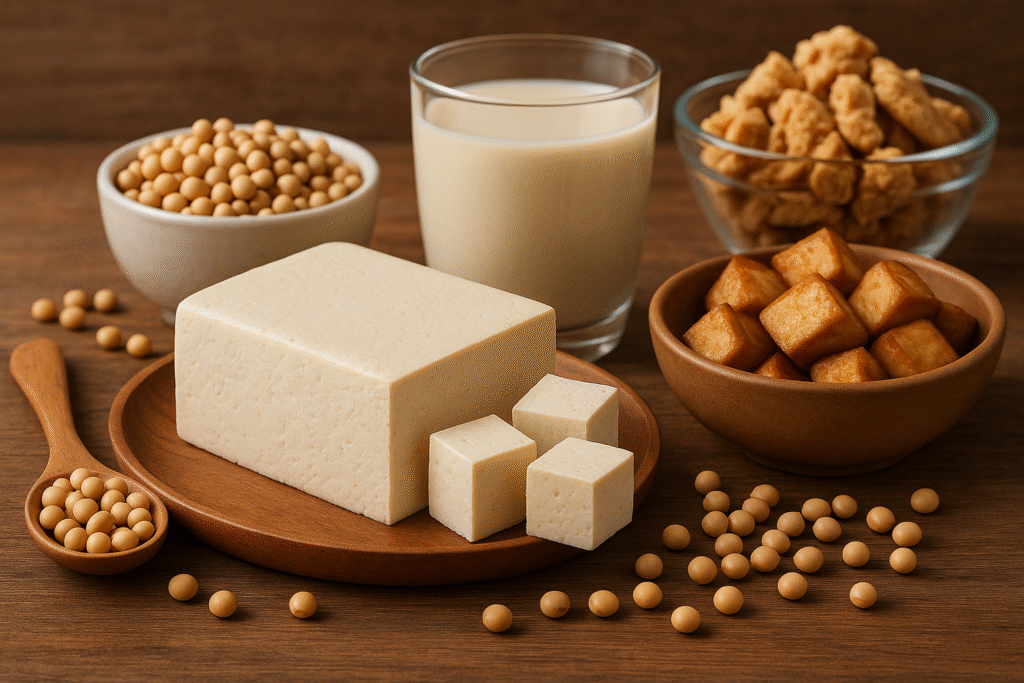
Tofu and soymilk were initially thought to have high purine content but are generally safe and considered low moderate purine.
Why They’re Good: Soy-based foods, such as tofu, are a plant-based protein you can turn to instead of red meat and shellfish, high-purine foods. They’ve been proven to have little effect on uric acid levels for the vast majority of people.
Key Takeaway: Aim to include tofu and soy as a protein if you are reducing meat consumption to prevent gout.
12. Water and Hydrating Fluids
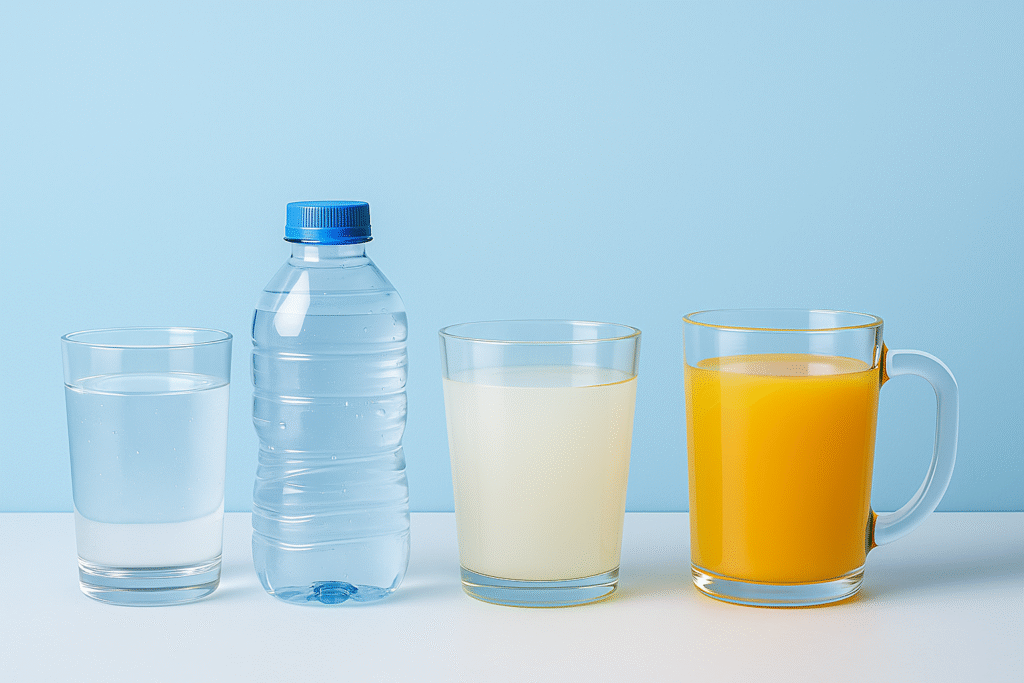
Drink water, lemon water, and herbal teas to flush out the extra uric acid.
Why They’re Good: Hydration is critical both for preventing the buildup of uric acid and supporting kidney function. Staying well-hydrated allows your body to expel purines more effectively.
Key Takeaway: Try to drink at least 8- 10 cups of water a day in order to help lower your risk of gout attacks and kidney stones.
Final Thoughts: How to Structure a Diet Around Foods Low in Purines
When you’re trying to maintain healthy uric acid levels, targeting foods low in purines is a powerful strategy. These foods not only stop flare-ups and kidney stress but also help with long term health, thanks to their fiber, antioxidants, and anti-inflammatory nutrients.
Here’s a fast recap of what to be paying attention to:
✅ Opt for plant-based proteins such as tofu, nuts and legumes.
✅ Prioritize whole grains, fruits and vegetables.
✅ Choose low-fat dairy or plant-based alternatives that are fortified.
✅ Avoid or limit high-purine foods, such as red meat, organ meats, shellfish and alcohol.
You’re in control of your health if you choose to eat wisely, selecting foods low in purines can help you maintain your health and avoid those painful symptoms. For an individualized plan that is tailored to your needs, always consult with a healthcare professional or dietitian.
